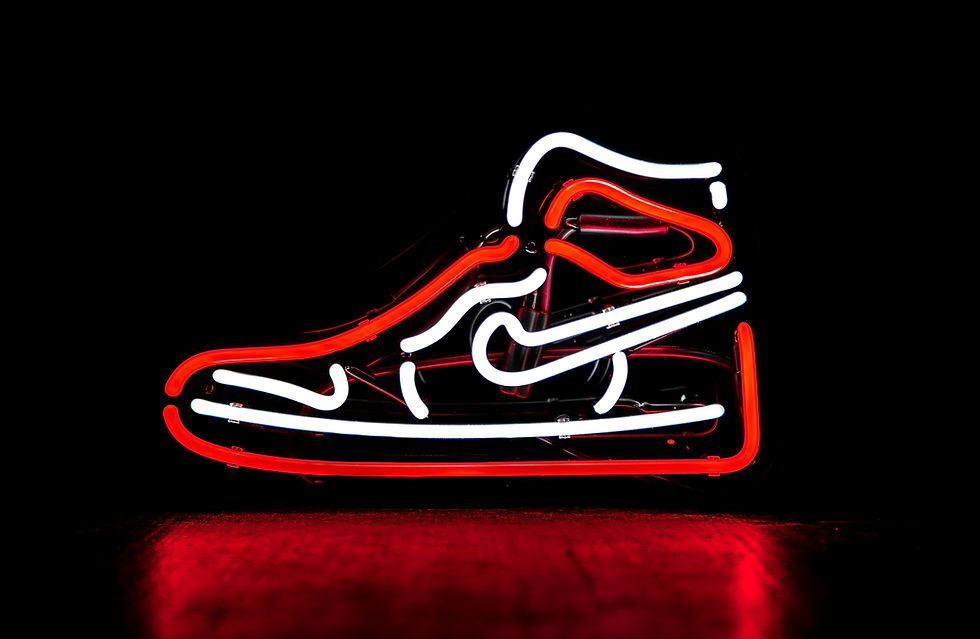A Deep Dive Into The Sneaker Resale Market
- Sneaker Blogs - Atul

- Apr 7, 2023
- 3 min read
The sneaker resale market has exploded in recent years, with some shoes selling for thousands of dollars on online Sneaker marketplaces like StockX and Lagait. While the sneaker industry has always had a healthy secondary market, the rise of sneaker reselling as a lucrative business has raised questions about the ethics and sustainability of the practice.

One of the main reasons for the growth of the sneaker resale market is the limited availability of certain styles and releases. Sneaker companies intentionally create scarcity by releasing limited quantities of highly coveted shoes, which can drive up demand and resale prices. This creates a feedback loop, as sneakerheads try to obtain rare and exclusive sneakers, often by paying exorbitant prices.
While sneaker reselling can be a lucrative business, it also has its downsides. The high prices of limited edition sneakers can make it difficult for casual sneaker enthusiasts to obtain their favorite shoes, leading to frustration and disappointment. Additionally, the practice of buying up multiple pairs of limited edition sneakers just to resell them at a markup has been criticized for being selfish and contributing to the scarcity problem.
Another concern with the sneaker resale market is the potential for counterfeit goods to be sold as authentic. The high prices of rare sneakers make them an attractive target for counterfeiters, and many resellers and buyers have been burned by fake shoes. However, online marketplaces have taken steps to combat counterfeits by verifying the authenticity of every shoe sold on their platforms.

The sneaker resale market has also had an impact on sneaker culture and the industry as a whole. Some argue that the focus on exclusivity and rarity has shifted the focus away from the art and design of sneakers, and that companies are more interested in creating hype and demand than in creating high-quality products. Additionally, the resale market has created a new level of competition between sneakerheads, as they try to outdo each other with the rarest and most expensive shoes.
Despite these concerns, the sneaker resale market shows no signs of slowing down. In fact, some analysts predict that it could grow even larger in the coming years, as more people become interested in sneaker culture and the secondary market. As the industry continues to evolve, it will be interesting to see how sneaker companies and consumers respond to the challenges and opportunities presented by the sneaker resale market.
Sure, here are some additional points you can add to the article on the sneaker resale market:
One of the most controversial aspects of the sneaker resale market is the use of bots to purchase limited edition sneakers. Bots are automated software programs that can buy up large quantities of sneakers within seconds of their release, often before human buyers have a chance to purchase them. This practice has been criticized for giving an unfair advantage to resellers, who can then resell the shoes at inflated prices to consumers who were unable to purchase them at retail.

In response to the bot problem, some sneaker companies have taken steps to limit the impact of bots on their releases. For example, Nike has implemented a "Draw" system, where consumers are randomly selected for the chance to purchase limited edition sneakers. Other companies have introduced raffles or other methods of distribution to limit the impact of bots.
Another trend in the sneaker resale market is the rise of luxury resellers. Companies like The RealReal and Vestiaire Collective specialize in the resale of high-end fashion items, including sneakers. These companies offer a curated selection of rare and exclusive sneakers, often at prices much higher than traditional sneaker resellers.
The rise of the sneaker resale market has also led to new opportunities for entrepreneurs and investors. Some companies have emerged to provide financing to sneaker resellers, allowing them to purchase large quantities of limited edition sneakers with the expectation of reselling them at a profit. Additionally, some investors have started to view rare sneakers as an alternative asset class, similar to art or wine.
Finally, the sneaker resale market has also had an impact on sneaker design and production. Some sneaker companies have started to create shoes with the resale market in mind, intentionally limiting production to create scarcity and drive up demand. Additionally, some companies have started to collaborate with sneaker resellers or to create their own resale platforms, recognizing the potential for profit in the secondary market.
Overall, the sneaker resale market is a complex and evolving landscape, with both positive and negative impacts on the industry and consumers. As sneaker culture continues to grow, it will be interesting to see how the sneaker resale market continues to evolve and adapt to new challenges and opportunities.





Comments